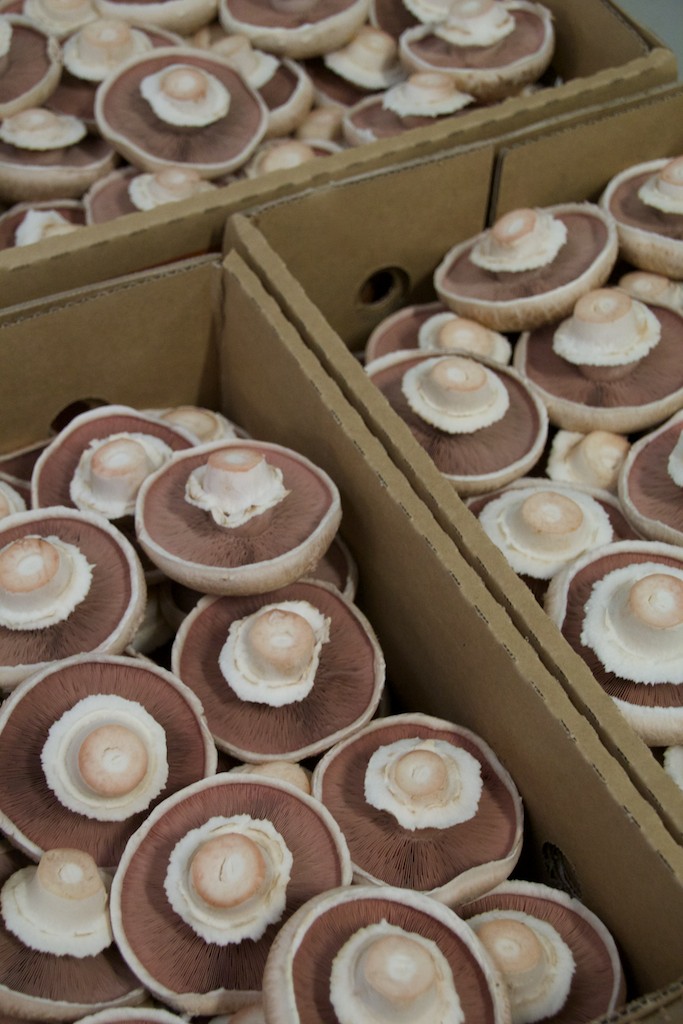Mushrooms: A surprising source of vitamin D

Many of us are not getting enough vitamin D, and deficiency rates are rising. It was thought that it was difficult to get enough Vitamin D from food, the main source being the effect of sunlight on the skin. However, new studies show that you can up your vitamin D intake easily (and tastily) by adding mushrooms to your diet.
What is Vitamin D?
Vitamin D (cholecalciferol) is often referred to as the ‘sunshine vitamin’ because our bodies make it via a reaction in the skin when it’s exposed to UV rays (aka sunshine). Exposing your arms or legs for 10 minutes every second day is generally all that’s needed to make enough vitamin D, though this will vary depending on your type of skin and where you live. It is only found in small quantities in a few foods, such as oily fish, egg yolks, butter and cheese. These are small sources - most people in Australia obtain only around 25 per cent of their vitamin D from food, with the majority needing to come from sunshine exposure. Read more about how hard it is to get vitamin D in Catherine’s post.
The trouble with sunshine is…
In some parts of the world, like northern Europe, with fewer daylight hours and colder, overcast weather, cod liver oil liquid or capsules have long been given to supplement an insufficient production of vitamin D. However, in a country like Australia, with its long hours of sunshine and warmer weather, we wouldn’t have any trouble getting the required time in the sun… would we?
|
The suggested Adequate Intake (AI): |
It turns out that Australians are finding it increasingly difficult to meet their RDI through sufficient time in the sun. This has resulted in about one third of us now having vitamin D deficiency. It is more common in:
- People with naturally dark skin and those who cover up for religious reasons
- Office workers, the elderly, and other groups who spend most of the sunlight hours inside
- Winter, where we rug up and spend more time indoors.
Some also attribute this increase in deficiency numbers to the over-success of the ‘Slip, Slop, Slap’ government campaign that started in the 1980’s, and whose purpose was to prevent skin cancer by blocking UV rays with sunscreen, shirts and hats.

Why is vitamin D deficiency such a problem?
Vitamin D plays an important role in our health; it:
- boosts the absorption of calcium and phosphorus, building strong bones and teeth,
- prevents rickets and osteoporosis,
- contributes to normal cell division, growth and development, and
- plays a role in our immune system to help keep us healthy.
Mushrooms to the rescue!
Mushrooms - dubbed the ‘meat of vegetarians’- are known to be a good source of many of the B vitamins (including B2, B3, B5, B12 and biotin), plus the minerals copper, chromium, selenium and potassium, as well as fibre and protein. Plus, thanks to their high level of natural glutamates, they have a delicious savoury flavour termed by the Japanese as ‘umami’.
Now, studies have shown that mushrooms, those dark-loving fungi, might provide an easy (and delicious) way to meet our vitamin D needs. So how does it work?
This newest health benefit of good ol’ mushies stems from their ability to produce their own vitamin D after exposure to light and this gets passed on to us when we eat them! Mushrooms are an abundant source of ergosterol, which can be readily be converted to ergocalciferol (the active form of the vitamin known as vitamin D2) through the action of sunlight.
Aren’t mushrooms grown in the dark?
 Yes, farmed mushrooms don’t usually get much exposure to sun, and if left too long in the light they can shrivel and turn brown. This prompted research into ways to capture this potential in mushrooms. It began in the US and culminated in studies here in Australia, which determined that exposing mushrooms to just seconds of pulsed UV light, post harvest, can allow them to produce over 20mcg vitamin D2 in one 100g serve (equal to 3 button mushrooms).
Yes, farmed mushrooms don’t usually get much exposure to sun, and if left too long in the light they can shrivel and turn brown. This prompted research into ways to capture this potential in mushrooms. It began in the US and culminated in studies here in Australia, which determined that exposing mushrooms to just seconds of pulsed UV light, post harvest, can allow them to produce over 20mcg vitamin D2 in one 100g serve (equal to 3 button mushrooms).
While these mushrooms offer more than double the suggested intake in a single serve, they aren’t readily available in all supermarkets and fruit and veg shops, although I have seen Ed Halmagyi advertising Vitamin D mushrooms on TV. Interestingly, later research at the University of Sydney (2013)* has shown that you can actually DIY it by placing ordinary, store-bought mushrooms in direct sunlight for one hour before eating. Yep, it’s that simple!
How to reap the benefits
You can get your total intake for vitamin D for the day by consuming just 100g, equivalent to three button mushrooms, of:
- ‘vitamin D mushrooms’ that have been exposed to UV light (labelled ‘vitamin D mushrooms’ in the supermarket) OR
- normal retail mushrooms that have been left in the midday sun for one hour (winter).
Thanks for assistance with this post to Megan Cameron-Lee (BND), APD Blog: http://thedieteticdegustation.blogspot.com.au
Full report on Vitamin D in mushrooms now available online at FSANZ.
*Quantification of Vitamin D levels in mushrooms (Agaricus bisporus) exposed to sunlight, Applied Horticulture Research – 2013



